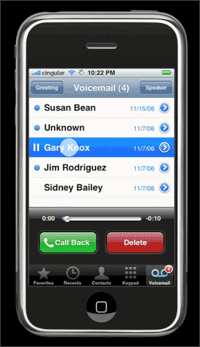I’m at a Loss
Wednesday, March 14th, 2007Cellular (mobile) phone companies are evil, there’s no doubt about that. Particularly here in the U.S., where service is often abysmal and the companies make every effort to nickel-and-dime you to death.
So I can understand not wanting to give them one more hot cent than you absolutely must, but still I’m confused by this:
Derek C. F. Pegritz, an English composition instructor at Waynesburg College in western Pennsylvania, wants to switch cellphone carriers because of dropped calls, but he isn’t sure how he’ll do it.
“I’m shelling out $90 a month for a phone that basically sits there and collects dust,†he said.
But getting out of his contract will cost him $170. Mr. Pegritz has tried to explore other ways to be released from the remaining year of his contract, but the best he hopes for is a compromise by Cellular One. “I’m looking forward to that about as much as I’m looking forward to getting several teeth pulled next week,†he said.
— NYT: Getting Out of a 2-Year Cellphone Contract Alive
If your phone “basically sits there and collects dust”, you’re getting $0/month of value from it. If you’re shelling out $90/month for service and have a “remaining year” left on your contract, you need to pay 12×90 = $1,080 for the next year.
In what scenario is it smart to just let the phone collect dust? If your service sucks, yes, by all means call the company and complain and try to get a break. But if not, pay the damn $170 to save nine hundred dollars in monthly fees!

